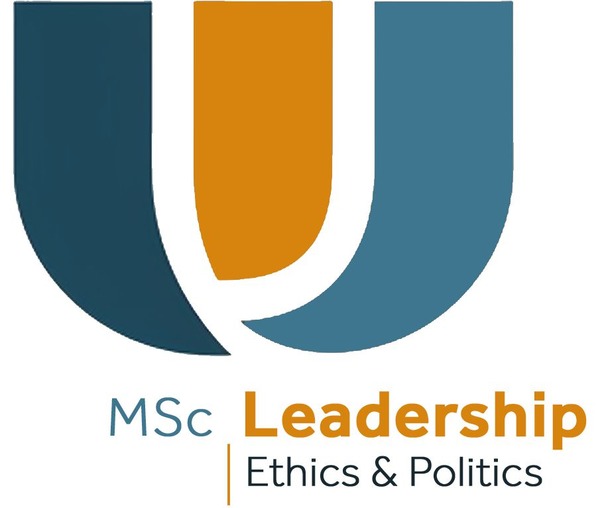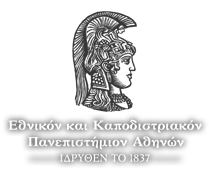Climate Change Related Challenges (LEPE7)
Assistant Professor Maria K. Chorianopoulou, Dr. Olga Karagianni
Syllabus
Course Syllabus
I. Climate change and the evolution of life on the planet - stories of losses and adaptations.
II. The contemporary climate crisis in the context of the broader ecological crisis - anthropogenic causes, impacts, risks, and challenges.
III. Effects and challenges of climate change in the fields of health and social policy.
IV. Effects and challenges of climate change in the fields of agriculture and forests.
V. Effects and challenges of climate change in the areas of biodiversity, ecosystems, and water resources.
VI. Effects and challenges of climate change for coastal and marine areas.
VII. Climate change as a distinct political field on the agenda of the United Nations' sustainable development goals.
VIII. The geography of the contemporary climate crisis - more polluting sectors and countries & vulnerable areas of the planet - challenges and ethical issues.
IX. Dialogue between science and politics on climate change: the history of the International Climate Change Convention.
X. The Declaration of Ethical Principles for Climate Change by UNESCO & the White Paper on Climate Change by the European Union.
XI. Climate change and Leadership - issues and challenges - strategies for mitigation and adaptation.
XII. Climate change and education.
XIII. Planning and decision-making for climate change - methodological tools & best practices.
Course Objectives/Goals
Instructional Methods
This course employs a dynamic blend of instructional methods to ensure a comprehensive learning experience. With a focus on engagement and flexibility, the instructional approach comprises 75% face-to-face teaching, fostering direct interaction between instructors and students in a traditional classroom setting. Additionally, 25% of the course involves distant teaching, which can be delivered either synchronously or asynchronously. This remote component allows students to access course materials, participate in discussions, and engage with learning activities at their own pace, leveraging online platforms and resources. By combining face-to-face interaction with remote learning opportunities, the course aims to cater to diverse learning styles and preferences, facilitating deeper understanding and collaboration among students while accommodating individual schedules and needs.
Assessment Methods
- 20%: Participation
- 20%: Oral presentation
- 60%: Written assignment
Prerequisites/Prior Knowledge
This module has no prerequisites in the curriculum or prior knowledge requirements.
Instructors
Instructors for the course will be announced shortly.
Textbooks
To be added soon.
Bibliography
- Dessler, A., Parson E., The Science and Politics of Global Climate Change. A Guide to the Debate, Cambridge University Press, Cambridge, 2006
- Gardiner, S.M., (2006), A Perfect Moral Storm: Climate Change, Intergenerational Ethics and the Problem of Corruption. Revised draft of a paper delivered to a workshop on Values in Nature at Princeton University
- Gupta, J., Grubb, M. (επιμ.), Climate Change and European Leadership. A Sustainable Role for Europe?, Environment and Policy, Kluwer Academic Publishers, Dordrecht/Boston/London, 2000
- Lӧvbrand, E. (επιμ.) Research Handbook on Climate Governance, Edward Elgar Publishing, 2015
- Ostrom, E., Governing the Commons, Cambridge University Press, 1990 Peeters, M., Deketelaere, K. (επιμ.), EU Climate Change Policy. The Challenge of New Regulatory Initiatives, Edward Elgar Publishing, UK, 2006
- World Commission on Environment and Development, (1987). Our Common Future, Report of the World Commission on Environment and Development. Published as Annex to United Nations General Assembly document A/42/427: Development and International Cooperation: Environment. August 2, 1987
- Yamin, F., Depledge, J., The International Climate Change Regime: A Guide to Rules, Institutions and Procedures, Cambridge University Press, Cambridge, 2004
- World Commission on the Ethics of Scientific Knowledge and Technology (2010), The Ethical implications of global climate change: report by the World Commission on the Ethics of Scientific Knowledge and Technology (COMEST), programme and meeting document, United Nations Educational,Scientific and Cultural Organization, France
- Dessler Andrew E. (2011), Introduction to Modern Climate Change, Cambridge University Press, ISBN-10: 0521173159
I. Climate change and the evolution of life on the planet - stories of losses and adaptations.
II. The contemporary climate crisis in the context of the broader ecological crisis - anthropogenic causes, impacts, risks, and challenges.
III. Effects and challenges of climate change in the fields of health and social policy.
IV. Effects and challenges of climate change in the fields of agriculture and forests.
V. Effects and challenges of climate change in the areas of biodiversity, ecosystems, and water resources.
VI. Effects and challenges of climate change for coastal and marine areas.
VII. Climate change as a distinct political field on the agenda of the United Nations' sustainable development goals.
VIII. The geography of the contemporary climate crisis - more polluting sectors and countries & vulnerable areas of the planet - challenges and ethical issues.
IX. Dialogue between science and politics on climate change: the history of the International Climate Change Convention.
X. The Declaration of Ethical Principles for Climate Change by UNESCO & the White Paper on Climate Change by the European Union.
XI. Climate change and Leadership - issues and challenges - strategies for mitigation and adaptation.
XII. Climate change and education.
XIII. Planning and decision-making for climate change - methodological tools & best practices.
This course employs a dynamic blend of instructional methods to ensure a comprehensive learning experience. With a focus on engagement and flexibility, the instructional approach comprises 75% face-to-face teaching, fostering direct interaction between instructors and students in a traditional classroom setting. Additionally, 25% of the course involves distant teaching, which can be delivered either synchronously or asynchronously. This remote component allows students to access course materials, participate in discussions, and engage with learning activities at their own pace, leveraging online platforms and resources. By combining face-to-face interaction with remote learning opportunities, the course aims to cater to diverse learning styles and preferences, facilitating deeper understanding and collaboration among students while accommodating individual schedules and needs.
- 20%: Participation
- 20%: Oral presentation
- 60%: Written assignment
This module has no prerequisites in the curriculum or prior knowledge requirements.
Instructors for the course will be announced shortly.
To be added soon.
- Dessler, A., Parson E., The Science and Politics of Global Climate Change. A Guide to the Debate, Cambridge University Press, Cambridge, 2006
- Gardiner, S.M., (2006), A Perfect Moral Storm: Climate Change, Intergenerational Ethics and the Problem of Corruption. Revised draft of a paper delivered to a workshop on Values in Nature at Princeton University
- Gupta, J., Grubb, M. (επιμ.), Climate Change and European Leadership. A Sustainable Role for Europe?, Environment and Policy, Kluwer Academic Publishers, Dordrecht/Boston/London, 2000
- Lӧvbrand, E. (επιμ.) Research Handbook on Climate Governance, Edward Elgar Publishing, 2015
- Ostrom, E., Governing the Commons, Cambridge University Press, 1990 Peeters, M., Deketelaere, K. (επιμ.), EU Climate Change Policy. The Challenge of New Regulatory Initiatives, Edward Elgar Publishing, UK, 2006
- World Commission on Environment and Development, (1987). Our Common Future, Report of the World Commission on Environment and Development. Published as Annex to United Nations General Assembly document A/42/427: Development and International Cooperation: Environment. August 2, 1987
- Yamin, F., Depledge, J., The International Climate Change Regime: A Guide to Rules, Institutions and Procedures, Cambridge University Press, Cambridge, 2004
- World Commission on the Ethics of Scientific Knowledge and Technology (2010), The Ethical implications of global climate change: report by the World Commission on the Ethics of Scientific Knowledge and Technology (COMEST), programme and meeting document, United Nations Educational,Scientific and Cultural Organization, France
- Dessler Andrew E. (2011), Introduction to Modern Climate Change, Cambridge University Press, ISBN-10: 0521173159
Calendar
Announcements
- - There are no announcements -

